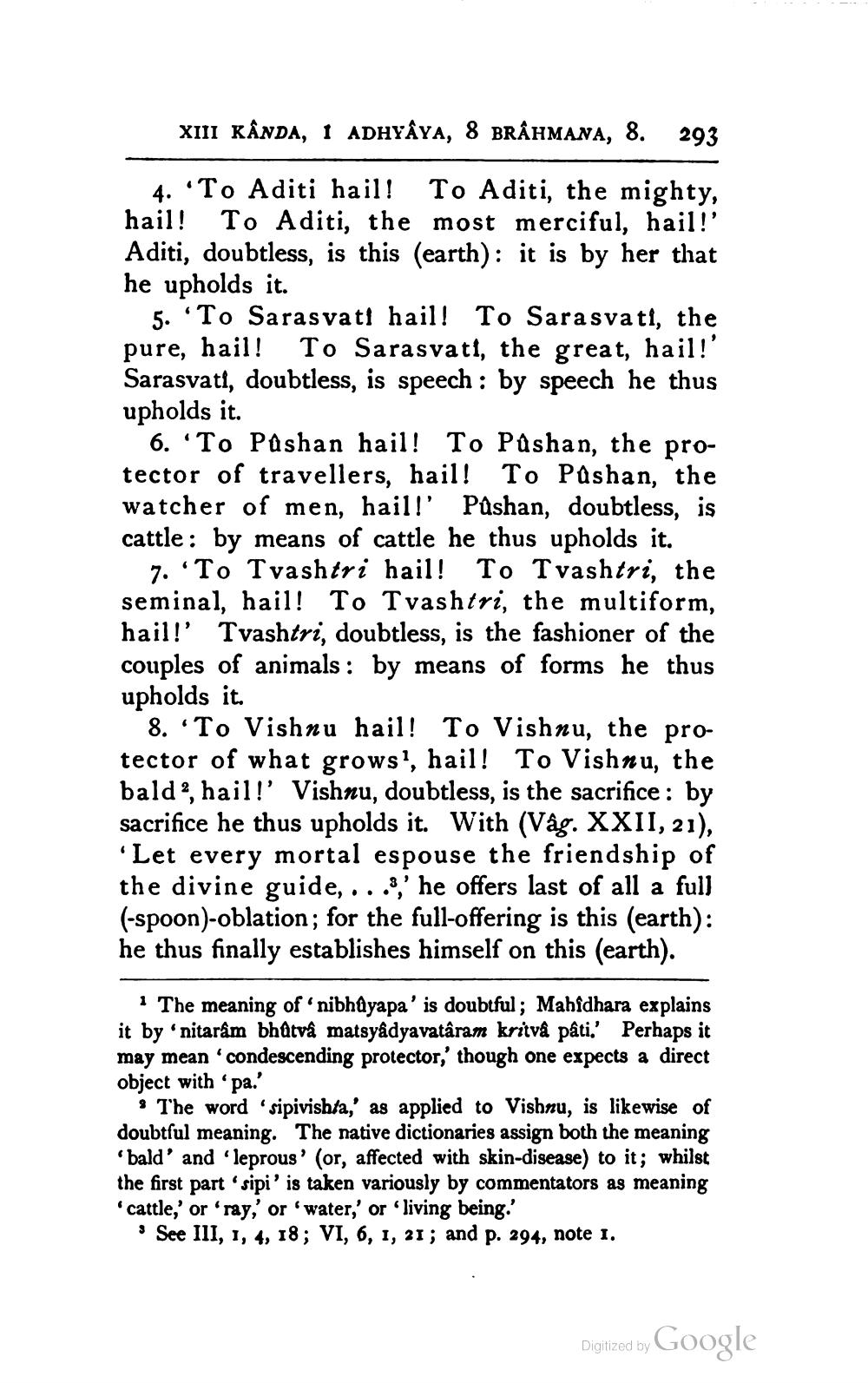________________
XIII KÂNDA, 1 ADHYÂYa, 8 BRÂHMANA, 8.
293
4. •To Aditi hail! To Aditi, the mighty, hail! To Aditi, the most merciful, hail!' Aditi, doubtless, is this (earth): it is by her that he upholds it.
5. 'To Sarasvati hail! To Sarasvati, the pure, hail! To Sarasvati, the great, hail!' Sarasvati, doubtless, is speech : by speech he thus upholds it.
6. 'To Pashan hail! To Pashan, the protector of travellers, hail! To Pashan, the watcher of men, hail!' Půshan, doubtless, is cattle: by means of cattle he thus upholds it.
7. .To Tvashtri hail! To Tvashtri, the seminal, hail! To Tvashtri, the multiform, hail!' Tvashtri, doubtless, is the fashioner of the couples of animals : by means of forms he thus upholds it.
8. •To Vishnu hail! To Vishnu, the protector of what grows', hail! To Vishnu, the bald, hail!' Vishnu, doubtless, is the sacrifice: by sacrifice he thus upholds it. With (Vág. XXII, 21), • Let every mortal espouse the friendship of the divine guide, ...,' he offers last of all a full (-spoon)-oblation; for the full-offering is this (earth): he thus finally establishes himself on this (earth).
The meaning of ' nibhayapa' is doubtful; Mahfdhara explains it by 'nitaram bhôtvá matsyadyavatâram kritvå pâti.' Perhaps it may mean 'condescending protector,' though one expects a direct object with 'pa.'
3 The word “sipivishta,' as applied to Vishnu, is likewise of doubtful meaning. The native dictionaries assign both the meaning 'bald' and 'leprous' (or, affected with skin-disease) to it; whilst the first part 'sipi' is taken variously by commentators as meaning cattle,' or 'ray,' or 'water,' or 'living being.'
See III, 1, 4, 18; VI, 6, 1, 21; and p. 294, note 1.
Digitized by Google




